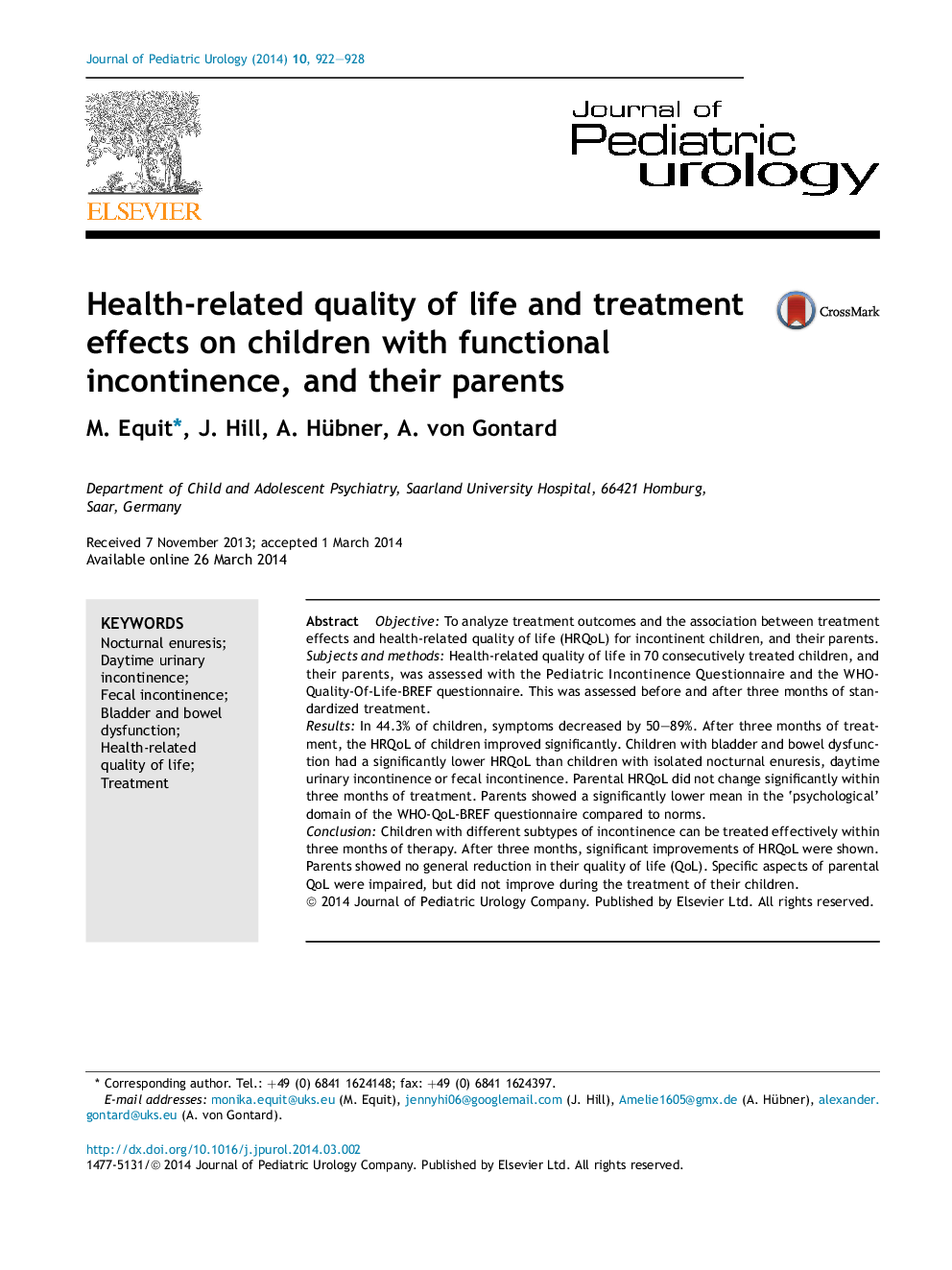| Article ID | Journal | Published Year | Pages | File Type |
|---|---|---|---|---|
| 4162370 | Journal of Pediatric Urology | 2014 | 7 Pages |
ObjectiveTo analyze treatment outcomes and the association between treatment effects and health-related quality of life (HRQoL) for incontinent children, and their parents.Subjects and methodsHealth-related quality of life in 70 consecutively treated children, and their parents, was assessed with the Pediatric Incontinence Questionnaire and the WHO-Quality-Of-Life-BREF questionnaire. This was assessed before and after three months of standardized treatment.ResultsIn 44.3% of children, symptoms decreased by 50–89%. After three months of treatment, the HRQoL of children improved significantly. Children with bladder and bowel dysfunction had a significantly lower HRQoL than children with isolated nocturnal enuresis, daytime urinary incontinence or fecal incontinence. Parental HRQoL did not change significantly within three months of treatment. Parents showed a significantly lower mean in the ‘psychological’ domain of the WHO-QoL-BREF questionnaire compared to norms.ConclusionChildren with different subtypes of incontinence can be treated effectively within three months of therapy. After three months, significant improvements of HRQoL were shown. Parents showed no general reduction in their quality of life (QoL). Specific aspects of parental QoL were impaired, but did not improve during the treatment of their children.
